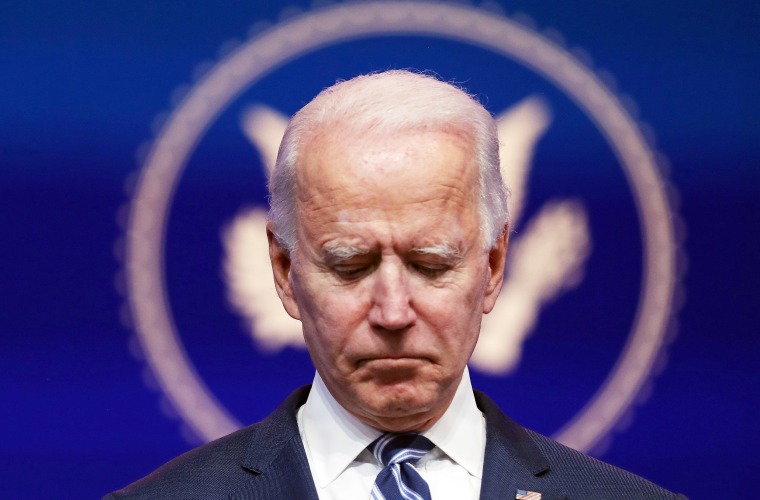On the Saturday that the major networks called the presidential election for Joe Biden and Kamala Harris, CNN commentator Van Jones, a progressive activist, declared that Black Lives Matter had now successfully transitioned from "a moment to a movement to a machine."
What best explained which groups were able to win an appointment of any sort was the success in setting up a meeting with the transition team.
Black Lives Matter proponent Cori Bush's win in Missouri's 1st Congressional District had capped off several years of intense protesting, organizing and turning out the vote to defend racial justice. And recent survey data showed that 1 in 5 voters claimed Black Lives Matter protests motivated them to vote.
But for Black Lives Matter or any other progressive group to truly become part of the machine that runs Washington, it has to do what Jones himself did. In 2009, he went from being an environmental activist for the Center for American Progress to being one of the first people chosen to join President Barack Obama's White House — as the special adviser for green jobs. His move was significant because real power in Washington depends on influencing the hundreds of key positions in an administration that determine the policy agenda.
It's clear that the transition is one of the best times to try to acquire these positions, and there's no shortage of groups in Washington that know this. The jostling for power during the 11 weeks between the election and the inauguration takes place at a pace so frenetic in the best of times that many groups are left on the outside looking in, lost in the confusion and disorder.
With President Donald Trump refusing to allow the transition to begin, this period is growing even shorter. His blocking the release of federal transition funding likely constrains how many people the Biden-Harris team can hire for the transition process and consequently limits the scale and scope of the job search they run. This should worry progressives.
I've studied presidential transitions over the last several decades, and in 2008 I fielded a survey among hundreds of interest groups with a stake in what would transpire during the Obama presidency. I gave them a detailed questionnaire about what actions they took after the election to influence hiring decisions and the policy agenda of the incoming administration. What best explained which groups were able to win an appointment of any sort was the success in setting up a meeting with the transition team.
Holding other factors constant, groups that met with the Obama-Biden transition team were nearly 20 percent more likely to have officials appointed than groups that didn't. As always, access wins, and the shortened transition means the number of meetings is likely to be severely reduced this year. This poses a major risk for progressives, who may lose out to more established groups with an inside track to the president-elect.
Also worrisome for progressive organizations is that what the Biden-Harris team is doing in spite of Trump's roadblocks is happening largely in private, limiting the transparency that tends to help newcomers. A closed process probably encourages the revolving door tradition in which connected former officials and lobbyists return to government at the expense of fresh faces.
Obama fretted over this so much that his transition team adopted a "Seat at the Table" policy requiring all groups to disclose information about any official meeting held with the transition team, reducing the chances for cronyism and secret backroom deals. Thus far, no such policy has emerged from the Biden-Harris team.
Still, the Center for American Progress, or CAP, Jones' organization, was so central to the Obama-Biden transition — several of its top leaders served at the upper echelon of the transition team — that 16 of its experts who wrote recommendations for the incoming administration were nominated to key political positions, while eight others were named to the White House staff, according to my research.
Not surprisingly, CAP recommendations soon turned into White House policy, including the creation of an Office of Energy and Climate Change Policy and an Office of Social Innovation and Civic Participation, each led by a former CAP expert.
Of course, connections aren't the only way to get a White House post. Because meetings are hard to come by, and in any case don't guarantee success in and of themselves, progressives should also be composing detailed policy and budgetary recommendations to influence the priorities of the new administration and the direction of federal spending, publicly endorsing nominees for key positions and joining coalitions of like-minded groups to have strength in numbers in their advocating.
Ultimately, like all interest groups vying for influence with the incoming administration, progressives are fighting over the scarcest resource in Washington: time. Though Black Lives Matter has already won an early spot on the Biden-Harris transition website by way of the incoming administration's described commitment to racial equity, the real wins will be measured in the personnel and policy agenda selected by the Biden White House. With the clock ticking, the progressive wing of the Democratic Party has to act fast to make sure electoral wins turn into long-term policy victories.



